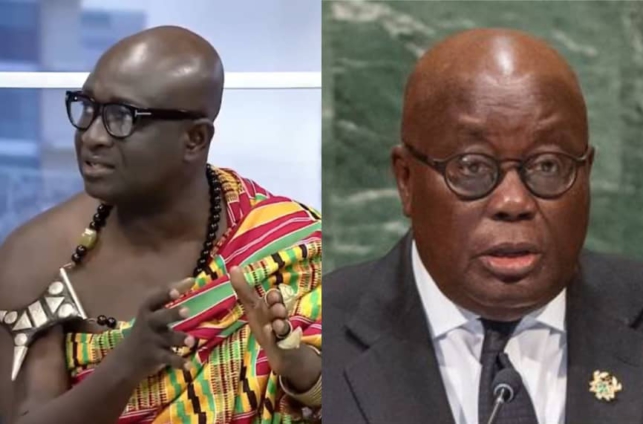A veteran broadcaster, Kwasi Kyei Darkwah (KKD), has expressed disappointment in President Nana Addo Dankwa Akufo-Addo’s use of the term, ‘l’argent n’aime pas du bruit,’ to wit, ‘money does not like noise,’ during his recent address to the nation.
According to the broadcaster, being a man of language, if the president wanted to appeal to the emotions of Ghanaians, he should have rather used the French phrase, ‘l’argent n’a pas d’odeur,’ to wit, ‘money has no odour.’
Speaking during an interview on JoyNews on Monday, October 31, 2022, and monitored by GhanaWeb, KKD explained that what President Akufo-Addo said is not factual.
“All of culture is embedded in language, and when he said it, I felt heartbroken because that was the statement to the populace who are speculating about where we are going and how the cedi is performing badly. He thinks if you talk down the money, then the money would go down. No! that’s not true,” he said.
He continued that if by the translation of what the president said in French, he meant that he has no problem with money, then he should have rather used a more appropriate one.
“If you talk down Joy FM, Joy FM will not come tumbling down so long as they have success criteria and are working assiduously to ensure that the success criteria is in place.
“You know, as a French scholar too, I think the better one he could have used is what is actually about his governance, which is ‘l’argent n’a pas d’odeur’: ‘sika nni panpan’, because if you look at in Kufuor’s regime, a man who was known to be corrupt, eventually was appointed by Nana Addo to become the head of the Public Procurement Authority, then it tells you that he has no problem with money, no matter the smell of it,” he said.
President Nana Addo Dankwa Akufo-Addo and, particularly, the Minister of Finance, have come under a lot of recent pressure over the management of the economy, which has seen many indicators looking bad for the country.
For example, the Ghana cedi has fallen by approximately 50% against the US dollar in the last ten months.
This has been coupled with inflationary pressures which have seen Ghana record a rate of 37.2 percent in September 2022 – the highest in about 20 decades.
The current economic challenges have culminated in job losses, worker agitations, rising costs of living, and general frustration among the populace.


